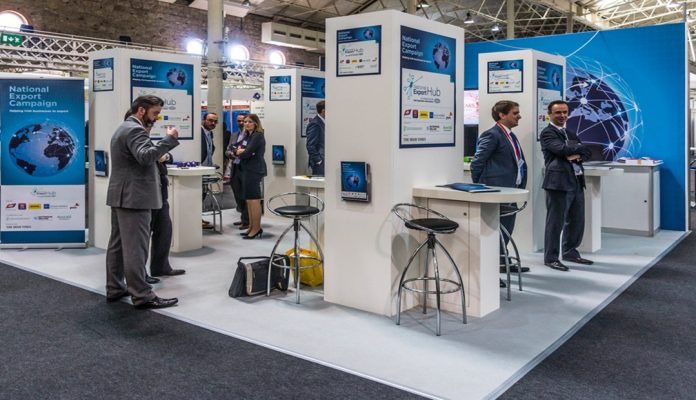Business Smart
In today’s fast-changing business world, it’s not enough to just keep up – you need to be a step ahead. It’s like being in a race, and if you don’t move faster than the others, you’ll fall behind. The here are concept of “Business Smart” has become increasingly crucial, encompassing not just intelligent decision-making but also a proactive approach to embracing innovation and adapting to change. This article delves into the future of Business Smart, exploring how businesses can leverage cutting-edge technologies, cultivate a culture of innovation, and anticipate emerging trends to ensure their continued success.
The Rise of Disruptive Technologies
The digital revolution has ushered in an era of unprecedented technological advancements, transforming how businesses operate and interact with customers. From artificial intelligence (AI) and machine learning (ML) to blockchain and the Internet of Things (IoT), these disruptive technologies are reshaping industries and creating new growth opportunities.
AI and ML: These technologies are revolutionizing data analysis, enabling businesses to gain deeper insights into customer behavior, optimize operations, and make data-driven decisions. AI-powered chatbots enhance customer service, while ML algorithms streamline processes and automate tasks.
Blockchain: This secure and transparent technology transforms supply chain management, financial transactions, and data security. Blockchain-based platforms offer increased efficiency, traceability, and trust, enabling businesses to build stronger relationships with partners and customers.
IoT: The interconnectedness of devices and sensors creates a vast data network that can be leveraged to optimize processes, improve resource utilization, and enhance customer experiences. IoT-enabled devices provide real-time insights into operations, allowing businesses to make informed decisions and respond to changing conditions in real time.
Cultivating a Culture of Innovation
Embracing innovation goes beyond simply adopting new technologies. It requires a fundamental shift in mindset, fostering a culture that encourages experimentation, collaboration, and risk-taking. Here are crucial elements to cultivate a culture of innovation:
1. Empower Employees: Encourage employees to share ideas, experiment with new approaches, and take calculated risks. Please give them the resources and support they need to bring their ideas to life.
2. Foster Collaboration: Break down silos between departments and encourage cross-functional teams to work together. This cross-pollination of ideas can lead to breakthrough innovations.
3. Celebrate Successes: Recognize and reward employees who contribute to big and small innovation. This reinforces the importance of innovation and motivates others to follow suit.
4. Encourage Continuous Learning: Create a culture of continuous learning by providing employees with opportunities to develop new skills and stay abreast of emerging trends. This ensures that your workforce remains adaptable and innovative.
Read More: How to Start a Construction Equipment Rental Business
Anticipating Emerging Trends
Staying ahead of the curve requires embracing current technologies and anticipating future trends. By keeping a close eye on industry developments, emerging technologies, and changing consumer behaviors, businesses can position themselves for future success. Here are a few important things that are happening in the business world that you should pay attention to:
1. The Rise of the Customer-Centric Economy: Customers increasingly demand personalized experiences and seamless interactions across all touchpoints. Businesses prioritizing customer experience and leveraging data to personalize offerings will gain a competitive edge.
2. The Growth of the Gig Economy: The rise of freelance platforms and remote work opportunities is changing the traditional workforce model. Businesses must adapt their recruitment and talent management strategies to attract and retain top talent in this evolving landscape.
3. The Importance of Sustainability: Consumers are increasingly conscious of their choices’ environmental and social impact. Businesses prioritizing sustainability and adopting eco-friendly practices will resonate with customers and enhance their brand reputation.
The Human Element of Business Smart
While technology plays a crucial role in the future of Business Smart, it’s important to remember that humans remain at the heart of successful businesses. Fostering a solid company culture, developing a diverse and inclusive workforce, and prioritizing employee well-being is essential for long-term success. By investing in their people and creating a positive and supportive work environment, businesses can unlock the full potential of their workforce and drive innovation. Additionally, focusing on ethical considerations and responsible use of technology will ensure that companies remain accountable and contribute to a sustainable future.
This human-centric approach, combined with a strategic embrace of innovation, will enable businesses to navigate the complexities of the future and thrive in the ever-evolving landscape of the 21st century.
The Human Element of Business Smart
While technology plays a crucial role in the future of Business Smart, it’s important to remember that humans remain at the heart of successful businesses. Fostering a solid company culture, developing a diverse and inclusive workforce, and prioritizing employee well-being is essential for long-term success. By investing in their people and creating a positive and supportive work environment, businesses can unlock the full potential of their workforce and drive innovation. Additionally, focusing on ethical considerations and responsible use of technology will ensure that companies remain accountable and contribute to a sustainable future.
This human-centric approach, combined with a strategic embrace of innovation, will enable businesses to navigate the complexities of the future and thrive in the ever-evolving landscape of the 21st century.
Conclusion
The future of Business Smart lies in embracing innovation, fostering a culture of continuous learning, and anticipating emerging trends. By leveraging cutting-edge technologies, empowering employees, and staying ahead of the curve, businesses can ensure their continued success in the ever-changing landscape of the 21st century.
Apart from this, if you are interested to know more about How to Start a Construction Equipment Rental Business, then explore our “Business” category.
Frequently Asked Questions (FAQs)
What are the biggest challenges to embracing innovation in business?
The biggest challenges include:
- Overcoming resistance to change.
- Managing the risks associated with new technologies.
- Ensuring that innovation aligns with the overall business strategy.
How can businesses measure the success of their innovation efforts?
Key metrics to track the number of new ideas generated, the percentage of ideas implemented, and the impact of innovation on revenue, customer satisfaction, and operational efficiency.
What resources are available to help businesses stay ahead of the curve?
Industry reports, conferences, online publications, and thought leadership articles can provide valuable insights into emerging trends and best practices.
How can businesses foster a culture of collaboration and idea-sharing?
Creating open communication channels, business smart establishing cross-functional teams, and providing opportunities for brainstorming and feedback can encourage collaboration and idea-sharing.
What role does data play in the future of Business Smart?
Data is essential for making informed decisions, understanding customer needs, and identifying emerging trends. Businesses that effectively leverage data will have a significant competitive advantage.










